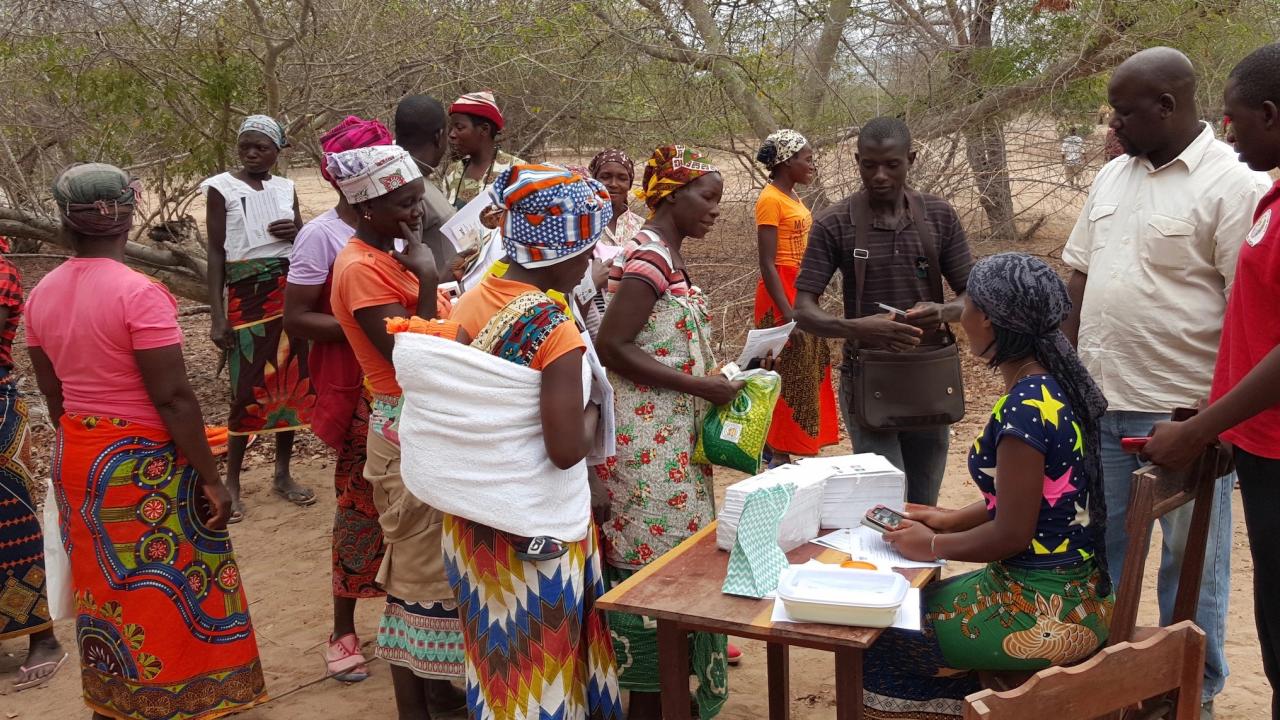The Challenge
Small-scale maize farmers in East Africa face a high risk of drought that destroys their crops and livelihoods. Mozambique faces a risk of both severe drought and extreme weather that causes widespread flooding. Tanzania faces a high risk of drought that destroys crops and forces small-scale farmers to forego investments in higher productivity.
The Innovation

The Resilience+ Model
Small-scale farmers in Sub-Saharan Africa and South Asia face an increasing risk of extreme weather like drought or flood that in any year can destroy their livelihoods. Facing these risks, farmers hold back from investing their scarce resources into improved practices or crop varieties because they can’t risk losing everything.
At the same time, when financial or agronomic tools reduce losses or provide support when times are bad, farmers make those investments, and they reap the rewards at harvest. These two together—resilience to shocks and investments that drive higher productivity—are the foundation of Resilience+.
Since 2006, the International Maize and Wheat Improvement Center (CIMMYT) and the International Institute for Tropical Agriculture (IITA) have been developing drought-tolerant maize (DTM) varieties to address this risk of drought. However, even this agronomic technology can still fail if drought is severe enough.
From 2015 to 2018, a research team led from UC Davis and funded by USAID developed a complementary bundle of drought-tolerant maize and agricultural index insurance for a seed replacement guarantee. Agricultural index insurance is a type of insurance that bases payouts on a remotely measured index of factors that predict an individual farmer’s losses, such as rainfall, vegetation growth, or an estimate of total yields in the area. The insurance in this project provided in-kind payouts of replacement seeds so farmers could replant in the season after severe losses.
The project leveraged the complementary features of the two technologies, one agronomic and the other financial. The drought tolerance of the DTM seeds lowered the cost of the insurance. The insurance, which provided seed replacements in the event of severe drought, reduced the risk of adopting DTM seeds.
The study was designed as a randomized controlled trial (RCT), which divided similar participants into groups that received the programming and a control group that did not. With this design, any differences in impacts among groups that received the programming and control-group participants can be attributed to the programming itself.
Resilience+
The study found that in normal years, the DTM varieties had about 12 percent higher yields than other varieties. In years with mid-season drought, DTM yields were nearly 50 percent higher, almost completely offsetting the losses experienced by farmers who were not offered the DTM seeds. While the evidence is less precise, DTM seeds also appear to offset increases in food insecurity induced by mid-season droughts.
In a severe drought, losses for the DTM varieties were comparable to other maize varieties, showing that the stress-tolerance has its limits. However, in the wake of these severe shocks, farmers with insured seeds achieved higher yields than in the year before the shock. Surveys showed that farmers planted with the seed replacements provided by the insurance but also increased their total investments in improved seeds.
These results show that the DTM varieties were more resilient to drought and that the in-kind insurance payouts encouraged farmers to deepen their investments in maize production. This combination of resilience to a shock and increased investments for a bigger harvest indicate Resilience+.

